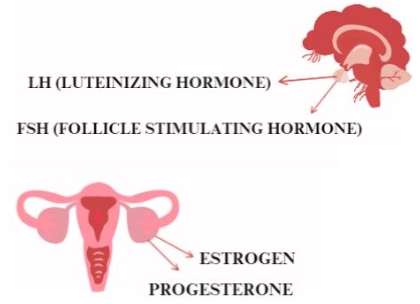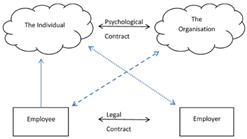Autocratic parenting of a humanoid robot: A QEEG-based case study
Abstract
There are four parenting styles based on two indicators of parental affection (parental responsiveness) and parental control (parental strictness). When there is no balance between the love and strictness of the parents, the child sees various damages in different psychological, biological, and social dimensions. These injuries can be continuous and overshadow his whole life. This article is a comprehensive review of the life of a 21-year-old girl with an authoritarian parenting style, i.e., low affection and high strictness. The mother has grown up, and this way of interacting with her continues from the mother’s side. Various results have shown that this girl, like her peers, has lost the ability to manage her life and basic human functions such as judgment, decision-making, planning, proper interpersonal communication, continuing education, and recognizing her interests and identity. It has become a robot that only obeys its mother and substitutes for the source of power to gain their satisfaction.
References
Mohammad, B., & Rana, B. (2015). Effects of intra-family parameters: Educative style and academic knowledge of parents and their economic conditions on teenagers personality and behavior. Educational Research and Reviews, 10(23), 2887–2896. https://doi.org/10.5897/err2015.2348
Bakhtavar M. (2020). The relationship between parenting styles and parental demographic components with their children personality types. Journal of Psychological Science, 19(86), 159–169.
Bandura, A. (2012). Cultivate Self‐efficacy for Personal and Organizational Effectiveness. Handbook of Principles of Organizational Behavior, 179–200. Portico. https://doi.org/10.1002/9781119206422.ch10
Baumrind D. (1978). Early socialization and adolescent competence. In: Dragastin SE, Elder GH. Ed. Adolescence in the life cycle: psychological change and social context. Wiley.
Esmaeilpour, F., hashemi, T., & Badri, R. (2018). The role of perceived parenting styles and borderline personality disorder in cyberbullying: mediate empathy. Shenakht Journal of Psychology and Psychiatry, 5(2), 81–92. https://doi.org/10.29252/shenakht.5.2.81
Lomanowska, A. M., Boivin, M., Hertzman, C., et al. (2017). Parenting begets parenting: A neurobiological perspective on early adversity and the transmission of parenting styles across generations. Neuroscience, 342, 120–139. https://doi.org/10.1016/j.neuroscience.2015.09.029
Mandara J. (2003). The typological approach in child and family psychology: A review of theory, methods, and research. Clinical Child and Family Psychology Review, 6, 129–146.
Mezei J., Juhasz A., Kilencz T., & Vizin G. (2020). Borderline personality disorder in the light of developmental psychopathology (Hungarian). Neuropsychopharmacol. Hung, 22, 102–111.
Mącik, D. (2020). Temperament, parenting styles and the intensity of early maladaptive schemas: assessment of correlations in a non-clinical adult group. Behavioural and Cognitive Psychotherapy, 49(2), 218–232. https://doi.org/10.1017/s1352465820000831
Olsavsky, A. K., Telzer, E. H., Shapiro, M., et al. (2013). Indiscriminate Amygdala Response to Mothers and Strangers After Early Maternal Deprivation. Biological Psychiatry, 74(11), 853–860. https://doi.org/10.1016/j.biopsych.2013.05.025
Oppenheimer, C. W., Hankin, B. L., & Young, J. (2017). Effect of Parenting and Peer Stressors on Cognitive Vulnerability and Risk for Depression among Youth. Journal of Abnormal Child Psychology, 46(3), 597–612. https://doi.org/10.1007/s10802-017-0315-4
Pearson, N., Atkin, A. J., Biddle, S. J., et al. (2009). Parenting styles, family structure and adolescent dietary behaviour. Public Health Nutrition, 13(8), 1245–1253. https://doi.org/10.1017/s1368980009992217
Ramezankhani F., Sadeghi M., & Goodarzi K. (2020). Comparing the Effectiveness of Teaching Mirror Neuron Strategies and Brain Executive Function on the Function of the Frontal Lobe of Boys with Conduct Disorder. International Journal of Behavioral Sciences, 16(2), 155–161.
Schaefer, E. S. (1959). A circumplex model for maternal behavior. The Journal of Abnormal and Social Psychology, 59(2), 226–235. https://doi.org/10.1037/h0041114
Shahsavari M. (2012). A general overview on parenting styles and its effective factors. Australian Journal of Basic and Applied Sciences, 6(8), 139–142.
Tozandehjani H., Tavakolizadeh J., & Lagzian Z. (2011). The effect of parenting styles on self-efficacy and mental health of students. Internal Medicine Today, 17(2), 56–64.
Copyright (c) 2024 Seyyedeh Sahar Asgari Ghalebin, Akbar Atadokht, Seyyedeh Mahsa Mousavi

This work is licensed under a Creative Commons Attribution 4.0 International License.









